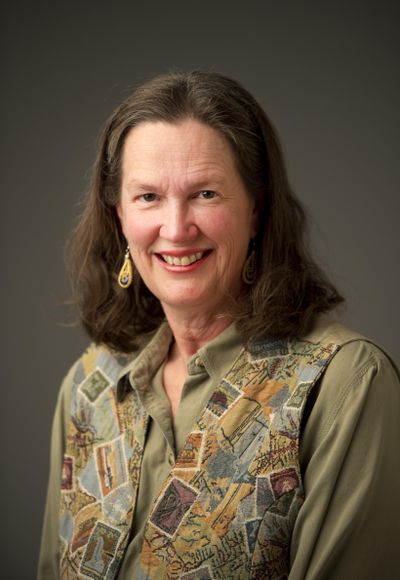Sue Lani Madsen: We’ve survived crappy presidents before; we’ll survive this election

The first
presidential election I remember was in grade school, when Goldwater squared off against Johnson and I squared off against a boy on the playground. I supported Goldwater because Goldwater was a cooler name. This is why 9-year-olds don’t have a vote on Tuesday.
The first “presidential” election I voted in was for sixth-grade class officers. It was an exercise in how elections work. One boy and one girl were nominated for president. I looked around the classroom, counted more boys than girls, and predicted the boy would win on the basis of gender loyalty. I was right. This is why 12-year-olds don’t have a vote on Tuesday, and why I still associate voting based on gender with childish thinking.
As a senior at Joel E. Ferris High School, I was vaguely aware there was an election. I wasn’t old enough to vote and lost interest after Washington’s own Sen. Henry “Scoop” Jackson dropped out. Richard Nixon vs. what’s-his-name, obscurity being the fate of the loser, didn’t hold my attention. Nixon won, and the 1972 election was over.
But it wasn’t. The Watergate hearings were televised in 1973 and my civics teacher tuned in the classroom all day every day. The Nixon campaign team had hacked into records at Democratic Party headquarters before the election. Pre-internet hacking meant physically breaking and entering, but it wasn’t the burglary that led to the investigation and Nixon’s resignation, it was the cover-up. What did the president know and when did he know it?
The outcome of this year’s election may sentence the Class of 2017 to a similar coming-of-age fate.
History doesn’t repeat itself, but it rhymes.
That apocryphal Mark Twain quote sent me searching for deeper historical precedents to this year’s hand-wringing, mind-numbing election cycle.
The original populist movement in the 1890s came at a time when there was a major displacement of workers due to competition in a newly emerging global market. Those workers felt ignored by elites, and suffered a loss of social status. Nationally prominent University of Vermont Professor Emeritus of History Mark A. Stoler, Ph.D., describes the context of the 1896 election this way:
“The fact that the two parties were so evenly matched and elections hinged on a very small number of votes in just six states led to marginalization of the real issues in favor of an emphasis on political machines in the cities, corporate contributions, and special favors to swing key states.”
The displaced workers were in agriculture and not factories, but the emotion was the same. Increasing productivity in agriculture led to fewer jobs, and frustrated farmers formed the basis of the populist movement that hatched a third party in the 1892 elections. It wasn’t successful at the national level and Democrat Grover Cleveland won. In 1896, the populist movement took over the Democratic Party and nominated William Jennings Bryan, portrayed by his opponents as a wild-eyed radical. His populist supporters were called the 1896 version of a “basket of deplorables.” Republican William McKinley won.
Stoler emphatically teaches that history does not repeat itself, and warns against anachronistic thinking that projects contemporary values onto the past without the proper context. But it’s still comforting to know we aren’t on entirely new ground.
In Washington, casting your vote means finding a stamp and remembering to get your ballot postmarked or dropped off on or before Tuesday. The majority of Washington ballots will be filled out this weekend and mailed on Monday.
Vote by mail is exceptionally convenient and you have plenty of time to check out campaigns at every level. Don’t leave down-ballot races blank because you don’t know the local or state candidates – those are your most important races. Do your own research or phone a friend who shares your principles.
Everyone is ready for this long, nasty campaign season to be over. When a worried 9-year-old at church asked me what was going to happen after the election, I reassured her. We’ve survived crappy presidents before. We’ll be all right.
Columnist Sue Lani Madsen can be reached at rulingpen@gmail.com or on Twitter @SueLaniMadsen.